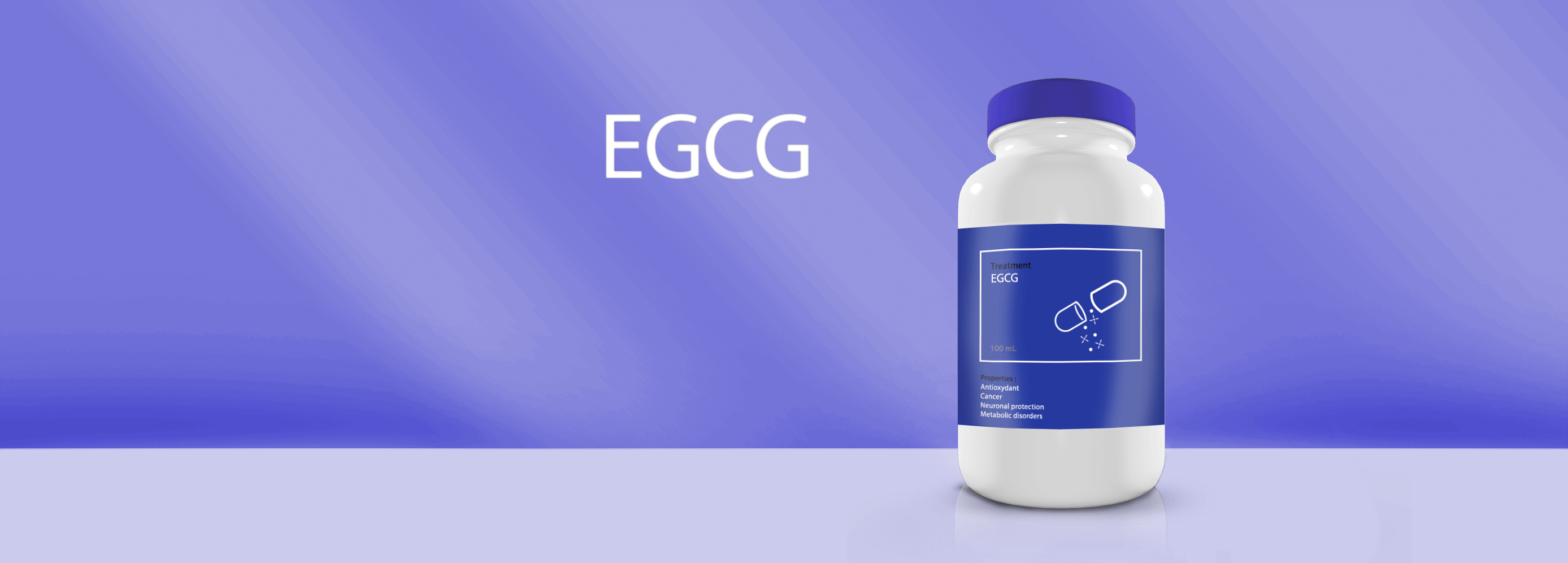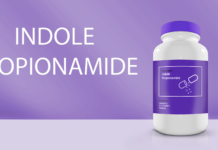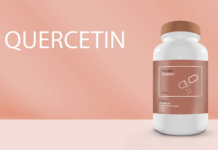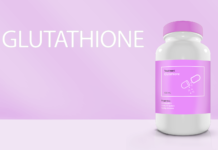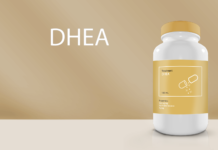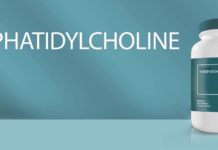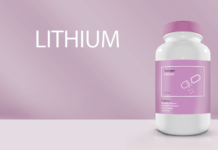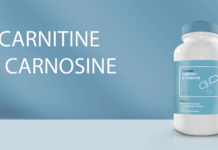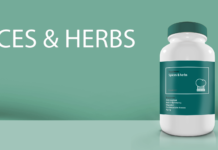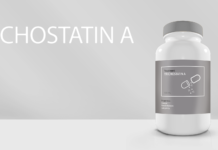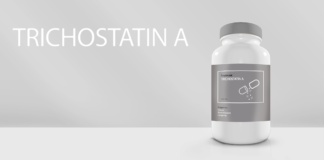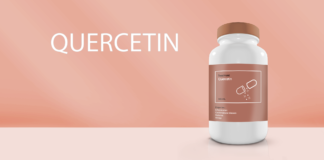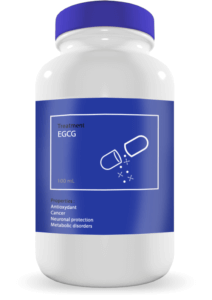
Fact sheet
EGCG: long name, multiple indications
It goes by the scientific name epigallocatechin gallate, but we will simplify by EGCG. This green tea extract has been known for a long time for its very powerful antioxidant capacities. It is also found in white tea and, in smaller quantities, in black tea. This catechin is now the focus of attention, particularly in the treatment of cancer and the prevention of neurodegenerative diseases.
One excellent cholesterol regulator
EGCG is not only an antioxidant, but also plays an active role in reducing “bad cholesterol” (LDL) levels. One of the first studies to demonstrate this effect dates from 2008[1] but since then, several other clinical studies have obtained similar results[2, 3]. This cholesterol-lowering effect also occurs in patients with hyperlipidemia, a major risk factor for cardiovascular disease[4].
In parallel, EGCG seems to have an effect on AGEs (“Advanced Glycation End-products”), molecules resulting from glycation (non-reversible addition of sugar) of proteins or lipids. The increase in EFAs is linked to many diseases due to aging such as diabetes, atherosclerosis or neurodegenerative diseases[5]. By reducing EFAs, EGCG therefore plays a central role in modifying and regulating lipids [6].
Close protection for your neurons
As our brain ages, many proteins become split, displaced or modified, giving way to more or less pronounced degeneration and various pathologies. EGCG, via the intake of 3 to 6 cups a day of green tea, helps reduce these neuronal effects and protect against certain diseases, including Alzheimer and Huntington[7, 8, 9]. A Japanese team also demonstrated that supplementation with EGCG reduced the risk of developing Alzheimer’s disease by 4 times and promoted the formation and maintenance of synaptic connections between neurons[10].
What about aging?
In addition to its specific effects on lipid metabolism and neurodegenerative diseases, EGCG plays an important role in the response to oxidative stress and gene regulation, two central mechanisms of aging. It is involved in DNA methylation via the regulation of methyl transferase DNA[11], a phenomenon that varies with age and allows the aberrant expression of certain proteins, or the inhibition of the synthesis of central proteins to the proper functioning of our cells. EGCG also plays a role in mitochondrial response to oxidative stress[12].
By regulating these mechanisms, the EGCG actively participates in the fight against aging. Although not sufficient in itself, this catechin brings beneficial elements to allow us to age in better health.
- Number publications: about 1,000
- Availability: over the counter
- Route: oral
- Dosage: from 500 mg to 3 g/day
Cardiovascular diseases: through its cholesterol-lowering effects, EGCG reduces the risk of atherosclerosis and cardiovascular accidents. It also seems to have a role in regulating the synthesis of NO, a central vasodilator in arterial plasticity, by its action on NOsynthase present in the cells lining our blood vessels[13].
Obesity and diabetes: regular consumers of green tea have a lower percentage of body fat (especially in the stomach) than the population that does not drink tea. Through a mimetic mechanism of insulin, EGCG helps lower blood glucose, thereby reducing body weight, hunger and insulin levels[14].
Cancer: Because of its role in DNA methylation, EGCG is an excellent candidate for cancer prevention, often linked to anarchic protein expressions. After interesting studies in patients already suffering from prostate cancer[15], several clinical studies are currently underway to determine the effect of EGCG on cancer, in partnership with conventional therapy.
No side effects have been found with supplementation up to 10 g/day in healthy individuals.
Caution however, if you supplement by drinking only green tea, to the dose of caffeine ingested which should not exceed 500 mg / day. ECGC can also cause iron malabsorption, so avoid taking it if you are anemic or take extra iron.
In combination with certain other plants or medicines, EGCG may cause liver problems (with borage) or bleeding (with ginseng or aspirin).
[1] Hooper L, Kroon PA, et al. Flavonoids, flavonoid-rich foods, and cardiovascular risk: a meta-analysis of randomized controlled trials. Am J Clin Nutr. 2008 Jul;88(1):38-50
[2] Nantz MP, Rowe CA, et al. Standardized capsule of Camellia sinensis lowers cardiovascular risk factors in a randomized, double-blind, placebo-controlled study. Nutrition. 2009 Feb;25(2):147-54
[3] Nagao T, Hase T, Tokimitsu I. A green tea extract high in catechins reduces body fat and cardiovascular risks in humans. Obesity (Silver Spring). 2007 Jun;15(6):1473-83
[4] Kim, A., Chiu, A., Barone, M. K., Avino, D., Wang, F., Coleman, C. I., and Phung, O. J. Green tea catechins decrease total and low-density lipoprotein cholesterol: a systematic review and meta-analysis. J.Am.Diet.Assoc. 2011;111(11):1720-1729
[5] Wang M, Zhang X, Zhong YJ, Perera N, Shahidi F.Antiglycation activity of lipophilized epigallocatechin gallate (EGCG) derivatives. Food Chem. 2016 Jan 1;190:1022-1026
[6] Vistoli, G; De Maddis, D; Cipak, A; Zarkovic, N; Carini, M; Aldini, G. Advanced glycoxidation and lipoxidation end products (AGEs and ALEs): an overview of their mechanisms of formation. Free Radic Res. 2013;47:Suppl 1:3–27
[7] de la Torre R, Dierssen M. Therapeutic approaches in the improvement of cognitive performance in Down syndrome: past, present, and future. Prog Brain Res. 2012;197:1-14
[8] Obregon DF, Rezai-Zadeh K, Bai Y, Sun N, Hou H, Ehrhart J, Zeng J, Mori T, Arendash GW, Shytle D, Town T, Tan J. ADAM10 activation is required for green tea (-)-epigallocatechin-3-gallate-induced alpha-secretase cleavage of amyloid precursor protein. J Biol Chem. 2006 Jun 16;281(24):16419-27
[9] Ehrnhoefer DE, Duennwald M, Markovic P, Wacker JL, Engemann S, Roark M, Legleiter J, Marsh JL, Thompson LM, Lindquist S, Muchowski PJ, Wanker EE. Green tea (-)-epigallocatechin-gallate modulates early events in huntingtin misfolding and reduces toxicity in Huntington’s disease models. Hum Mol Genet. 2006 Sep 15;15(18):2743-51
[10] Schmidt A et coll Green tea extract enhances parieto-frontal connectivity during working memory processing. Psychopharmacology, 2014 Oct;231(19):3879-88
[11] Won Jun Lee, Joong-Youn Shim et Bao Ting Zhu, Mechanisms for the Inhibition of DNA Methyltransferases by Tea Catechins and Bioflavonoids, Molecular Pharmacology, 2005;68:4, p.1018-1030
Mitochondrial Integrity, and Antioxidative Enzyme Activity in Fischer 344 Rats by Supplementation of the Antioxidant Epigallocatechin-3-Gallate, Rejuvenation Research. 2008;649-660
[13] Ouyang P. et al., Grean tea polyphenols inhibit low density lipoprotein-induced proliferation of rat vascular smooth muscle cells, Di Yi Jun Yi Da Xue Xue Bao, 2004; 24(9):975-9
[14] Tsuneki H. et al., Effect of green tea on blood glucose levels and serum proteomic patterns in diabetic mice and on glucose metabolism in healthy human, BMC Pharmacol., 2004; 4(1):18
[15] Bettuzzi et al. Chemoprevention of human prostate cancer by oral administration of green tea catechins in volunteers with high-grade prostate intraepithelial neoplasia: a preliminary report from a one-year proof-of-principle study. Cancer Res. 2006;66(2):1234-40
Dr. Marion Tible

Author/Reviewer
Auteure/Relectrice
Marion Tible has a PhD in cellular biology and physiopathology. Formerly a researcher in thematics varying from cardiology to neurodegenerative diseases, she is now part of Long Long Life team and is involved in scientific writing and anti-aging research.
More about the Long Long Life team
Marion Tible est docteur en biologie cellulaire et physiopathologie. Ancienne chercheuse dans des thématiques oscillant de la cardiologie aux maladies neurodégénératives, elle est aujourd’hui impliquée au sein de Long Long Life pour la rédaction scientifique et la recherche contre le vieillissement.
En savoir plus sur l’équipe de Long Long Life


